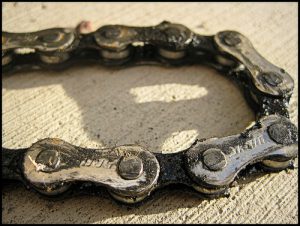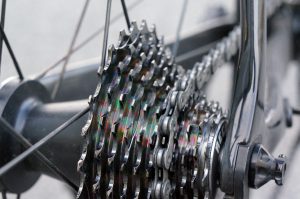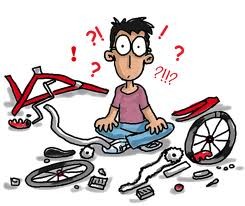Athlete Acknowledgement of Risk, Release of Liability and Agreement:
I understand that this Acknowledgement of Risk, Release of Liability and Agreement is applicable to Bolton Endurance Sports Training, its coaches, associate coaches, employees, managers, members, affiliates, agents consultants and trainers (hereinafter the “Released Partiesâ€), and I voluntarily enter this agreement. I am applying to participate in the Bolton Endurance Sports Training athletic training program and related activities (collectively referred to as “Trainingâ€) being fully aware that the Training involves risks. I accept all the risks of participating in the Training, even if they are created by the carelessness or negligence of a Released Party or anyone else. Risks of the Training include, without limitation, risks of bicycling, indoors or on roads and highways open to traffic, running, on roads, trails or treadmills, swimming in pools or in open water, lakes, oceans or other bodies of water, triathlon, duathlon, physical exertion, training and competing in large groups of people which may create the risk of falls, contact or other trauma, and other risks associated with intense physical activities. I understand these risks exist, that they are beyond the control of Bolton Endurance Sports Training and its employees, affiliates and/or coaches, and I voluntarily accept and assume these risks as part of the Training I will undertake. Additional risks are described on the accompanying List of Possible Hazards. I know there are other risks too that are not listed and I voluntarily accept them too. I fully release, discharge and waive any Claims I may have, now or in the future, against the Released Parties, even if such Claims are based on the carelessness or negligence of a Released Party or anyone ("Claims" as used in this document means any and all liabilities, claims, demands, legal actions, and rights of action for damages, property damage, personal injury or death) which are related to or in any way connected with my participation in the Training which I or my heirs or personal representative could make.
I AGREE NOT TO SUE THE RELEASED PARTIES FOR CLAIMS, EVEN IF THE CLAIMS ARISE FROM THE CARELESSNESS OR NEGLIGENCE OF A RELEASED PARTY OR ANYONE ELSE. I AGREE TO INDEMNIFY (REIMBURSE FOR ANY LOSS) AND HOLD HARMELSS EACH RELEASED PARTY, FROM ANY LOSS OR LIABILITY (INCLUDING ANY REASONABLE ATTORNEYS FEES THEY MAY INCUR) DEFENDING ANY CLAIM MADE BY ME OR BY ANYONE MAKING A CLAIM ON MY BEHALF, EVEN IF THE CLAIM IS ALLEGED OR DID RESULT FROM THE CARELESSNESS OR NEGLIGENCE OF A RELEASED PARTY OR ANYONE ELSE I UNDERSTAND THAT BY SIGNING BELOW, I AM GIVING UP CERTAIN LEGAL RIGHTS AND RELEASING THE RELEASED PARTIES FROM LIABILITY IN ACCORDANCE WITH THE PROVISIONS OF THIS AGREEMENT. I ACKNOLEDGE THAT I AM VOLUNTARILY GIVING UP THOSE RIGHTS, AND AM VOLUNTARILY UNDERTAKING THE INDEMNITY OBLIGATIONS DESCRIBED IN THIS PARAGRAPH.
I am aware that there is no obligation for any person to provide me with medical care during the Training. If medical care is rendered to me, I consent to that care if I am unable to give my consent for any reason at the time that the care is rendered. I am aware that it is advisable to consult a physician prior to participating in the Training. If I have consulted a physician, I have taken the physician's advice. I grant my permission to Bolton Endurance Sports Training and to its transferees and licensees, to utilize any photographs, motion pictures, videotapes, recordings and any other references or records of the Training which may depict, record, or refer to me for any purpose, including commercial use, by Bolton Endurance Sports Training, its sponsors, associate coaches and their licensees.I understand that the Bolton Endurance Sports Training coaches, assistant coaches, members, trainers, agents and other affiliates are NOT physicians or health care professionals, and do not have medical training, and are NOT qualified to provide medical advice or consultation. I agree to consult my own physician in connection with any pain, ailment, injury, illness, reaction or other physical or medical condition that may be associated with the Training, and I specifically release and hold harmless the Released Parties from any and all liability, costs, expenses or obligations in connection with any such physical injuries or issues.I agree to abide by the rules of Bolton Endurance Sports Training in any of its training camps. I acknowledge that, if I violate any of these rules, I may be removed from the training camp and the permission for me to participate in the Training camp may be withdrawn by representatives of Bolton Endurance Sports Training. Others may violate the rules of the camps, adding to the risks of participation. No warranties have been made to me about the Training.I intend that this document act as the broadest and most inclusive assumption of risk, waiver, release of liability, agreement not to sue and indemnity as is permitted by the laws of the State of New Mexico. If any portion of it is held to be invalid, I agree that the rest of it shall continue in full force and effect. The singular of nouns and pronouns in this document includes the plural and the plural includes the singular. I agree that this agreement was made in Santa Fe, NM and that the laws of the State of New Mexico shall govern its interpretation and enforcement.If the participant is under 18 years of age, the parent agrees to the following statements: As a parent or guardian of the participant, I authorize the child to participate. I also join in the statements and agreements made by the participant in this document. I agree that, in the event participant or anyone acting on his or her behalf should make any Claims, I will provide the indemnities described in paragraph 3. List of Possible Hazards The following is a partial list of hazards that are often associated with training for triathlon, duathlon, bike racing, running, swimming, cross country skiing, and other such endurance events: Falls resulting in broken bones, sprains, strains, contusions, and equipment damage. Collisions with other athletes or vehicles on the road or trail. Drowning during open water swimming.Saddle sores, crotch rash, neck and back pain, and hand numbness related to bicycle riding. Tendonitis and bursitis, muscle strains and/or tears, and trigger points. Upper respiratory infections associated with heavy training loads. Heart attack and other heart-related symptoms.Gastrointestinal problems such as diarrhea, constipations (due to dehydration issues) Blood in urine or issues trying to urinate, high ketones or protein levels. Men: penile numbness, prostatitis, swollen testicles, and impotence from bicycling. Women: nipple pain from friction, vulvar swelling, groin and chest rashes, and yeast infections. Anemia, fatigue, difficulty sleeping, and exposure to pollution, weight loss, immune system issues due to improper recovery and nutritional needs.Post goal race depression following your "A" race for the season. Reactions to chlorine, possible ear infections, excessive dry skin (worse in cold climates), change in hair color, and nasal infections.Heat stroke, sunburn, hypothermia, frost bite, or other conditions related to outdoor training or extreme weather conditions.


 The amount of stretch in your chain can be measured if you have the tool, or your local mechanic can help you. Also, it’s important to inspect your chainrings and gears. It is inevitable that the teeth will wear down. As good as you may be about cleaning your bike, dirt and sand get in between the teeth and each chain length and this friction ends up grinding down the teeth. Bottom line is that if you replace your chain, keep your chainrings and gears clean, and replace your cassette and chainrings when they show significant wear, your bike will feel smooth.
The amount of stretch in your chain can be measured if you have the tool, or your local mechanic can help you. Also, it’s important to inspect your chainrings and gears. It is inevitable that the teeth will wear down. As good as you may be about cleaning your bike, dirt and sand get in between the teeth and each chain length and this friction ends up grinding down the teeth. Bottom line is that if you replace your chain, keep your chainrings and gears clean, and replace your cassette and chainrings when they show significant wear, your bike will feel smooth.
